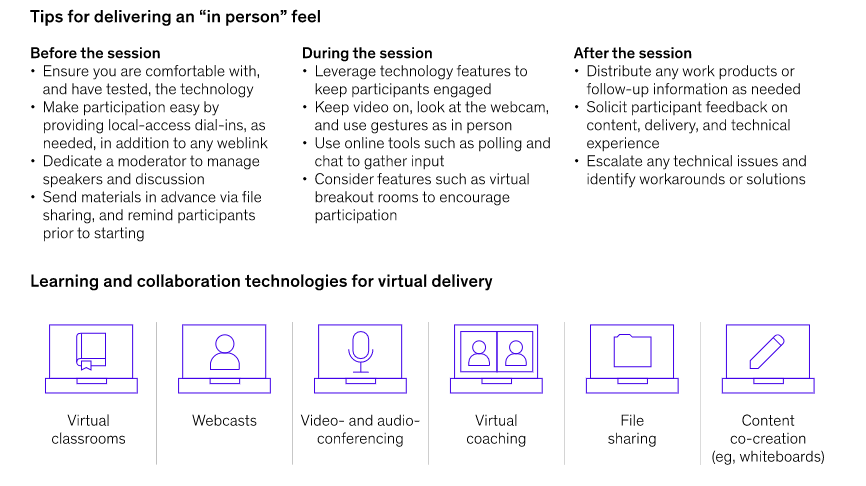
Hiring After The Lockdown
Posted on:
by Namratha Ambat
IT Jobs and Recruitment Insights
The process of looking for, interviewing, and hiring new employees has probably been altered to a great extent with the onset of COVID-19. There were some who were hired even during the lockdown, and now that we see restrictions being lifted, there are more jobs going live. This means companies are on the lookout for new talent.
When it comes to interview and candidate experience, as well as maintaining employee life cycles, there are always areas for improvement. Here’s a simple guide to help enhance these areas and adapt to the new normal. Slowly but surely, things are getting back on track. Ensure your organisation is ready for this return.
Best interview practices and making way for the “new normal”
For the first time, many companies tested the “work from home” option as a result of the pandemic. This meant that any hiring processes were conducted remotely.
Candidate Experience and preparing interview teams:
We recently conducted a survey to capture candidate sentiment when it came to interviewing in the Irish market. The data collected in this survey was gathered just before the pandemic broke out in Ireland. However, there are still key learnings to take from the findings.
Areas to improve:
- Slow process and poor feedback have always been one of the main pain points for candidates while interviewing, as 24% of the respondents reported. Even more so now considering the circumstances, creating that first good impression is crucial. The interview process is the first step when it comes to creating an optimal candidate experience, which leads to better retention rates in the long run.
- The responses also indicated that 19% of the candidates were unhappy with the interviewer’s behaviour. Employers must strive to build consistency in their recruitment process, especially if there will be multiple hiring managers conducting interviews. This requires preparation before the interview to know who you will be speaking with, plan the questions, and treat them well.
- Interview structure was reported as an area of concern by 15% of the respondents. If this was a concern before, it will be more important now to ensure that you have a good plan in place to cater to the company’s needs while simultaneously focusing on the candidate’s experience.
Measures that are working for companies:
-
Being a supportive company: What better way to create a good first impression, than making the candidate feel comfortable and welcome? Close to 27% of the respondents were able to list out ways companies made their interview experience a one to remember.
-
The nature of the interview, the format, and the process some companies have in place is playing well with candidates. But the key factor now would be to adapt these best practices into the remote hiring process, as close to 27% of the respondents stated that this was one of the crucial elements in an interview process.
-
In-depth insight into the role, 10% of the respondents highlighted this as a contributing factor to a good interview experience. In addition, it’s quite an ambiguous time to switch jobs now, so the more information you can provide a candidate with, the more interested they would be in joining your company.
-
The interviewer’s honesty and transparency are probably valued now more than ever. The survey indicated that close 7% of the respondents listed this as a reason for having a positive interview experience. Now, is an equally taxing time for candidates too, so setting expectations about the process and the time it would take to receive an answer is important.
Read the complete survey and analysis on Candidate Interview Experience here.
Logistics and operations
Interview
-
Ensure you have a streamlined process: Our reliance on technology has only increased with everything going remote. Hence it is essential to iron out all the processes and have accounts set up and connections checked so that you’re able to deliver a good experience for the candidate.
-
Have back-ups and support: If possible, have backup personnel on call to help manage the “hour-by-hour” coordination of a candidate’s process, particularly in the event things don’t go as planned. This method will help ensure things run smoothly.
-
Ensure a proper brief is presented to the candidate prior to interview: While conducting an interview you’re hoping it goes well for the candidate as well. To ensure this runs smoothly it is important to send them a brief regarding the platform you would be using to conduct the interview, the number of rounds, and what each round consists of. Also, advise them to take 15 minutes beforehand to test sound, video, and a backup mode of communication.
Onboarding:
Onboarding new hires has always been one of the most important steps in delivering an optimal candidate experience, with the added hurdle of COVID, how is your organisation really adapting? Ensure everything is digitalised. If these were normal circumstances, the first day and first interactions with the team would be one of the most exciting moments in a new hire’s journey with the company.
- Spread out your virtual onboarding process over a few days, as this would help the new hire ease into their new role and company.
- Ensure all the equipment is delivered to the employee on time and with all the necessary resources installed. Do try and test everything, so that the candidate does not face any issues on their first day.
- Assign an onboarding buddy. This will help the new employee to open up and gain individual guidance, which will help them become more familiar and comfortable with the company.
- Organise smaller groups to join virtual meetings, to have conversations with the new employee so they’re able to gain a taste of the company culture and atmosphere.
- Make sure you organise an informal meeting at the end of their first week, for virtual drinks, a quiz session, or some activity. This helps end the week on a lighter note and it also helps maintain the culture of the company.
Here’s a 4 step guide on Effective Strategies For Onboarding During The Coronavirus Crisis.
Another informative post that goes into some of the best practices and tips on onboarding remotely, so that you can get it right. Read now.
These are uncharted waters, you need to try and test different methodologies to get it right. You need to find and define the process that best suits your company. What worked and what didn’t work? If you have any knowledge to share with us we would be delighted to hear from you, email us on info@gempool.ie.
Strategies for growing employees and how help them upskill in 2020
Those companies that weren’t completely impacted by the onset of COVID were able to function daily by adapting to the changes. The whole purpose of quickly adapting to the new normal was to ensure the business can continue as usual and functioning normally would entail sticking to employee development plans.
What does that look like now?
-
Plan, prepare and protect in-person programs
If as a company you’re inviting employees in to conduct particular sessions, it will be smart to create a plan beforehand where details regarding social distancing, alternatives to previous session settings and have necessary sanitisation procedures in place. For those employees that are logging in remotely ensure all their virtual collaboration tools are functioning and ready to go.
-
Conducting virtual sessions
This probably needs a lot of planning and coordination. The best way to deliver this would be to ensure all materials are delivered to the team beforehand and technology tests are run. Make sure the tone of the entire session is interactive, you can do this by adding polls, chats, and breakout rooms. Finally, always ask for participant feedback, so that you’re able to address pain points before the next session.

(Source: McKinsey and Company)
While the pandemic presented several challenges, there were positive learning points as well. As companies that can adapt, we now know that our teams can function remotely and still deliver optimal results. Once processes are ironed out and technology is in place, our day-to-day functions can be carried out smoothly. The only concern that remains is maintaining company culture and this is your chance to test what suits your employees and company the best and tailor a plan that fits all.
If you're looking for more insight into the industry and how it's performing at this time, don't hesistate to get in touch. You can email us on info@gempool.ie.





